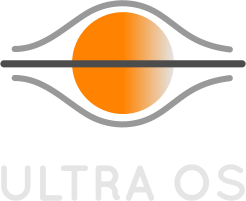
Unlike fragmented solutions, ULTRA OS aims to unify simplicity, performance, and modern design across all devices desktop and mobile—under one cohesive platform.
ULTRA OS will be a next-generation operating system project initially targeting desktop PCs and laptops, with plans to expand to mobile phones and tablets in later stages. Our ultimate goal is to provide a compelling, open-source alternative to today’s dominant platforms.



Signup our newsletter to get update information, news, insight or promotions.

Currently in the concept and prototyping phase, ULTRA OS is an open-source initiative to create a Resource-efficient but comprehensive operating system to cover both PC and mobile hardware.
If you feel that you can assist our effort then please send an email to: info@ultraos.eu
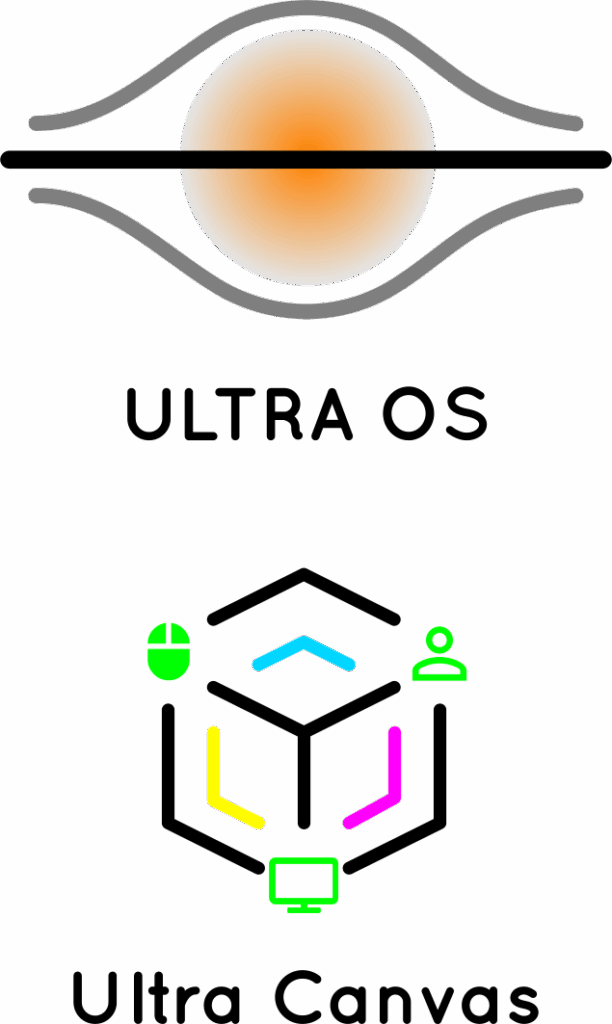
ULTRA OS is a practical rethinking of what an operating system should be: fast, focused, and free from bloat. We’re building a platform that prioritizes clarity, performance, and user control — with no corporate influence.
Your donation helps us stay independent, improve developer tools, refine the user experience, and deliver a system built to serve you, not advertisers or shareholders.
Support ULTRA OS — and help shape the future of computing
Google’s Android operating system dominates the global mobile market with an estimated 70% share, while Apple’s iOS holds around 27%. This leaves an open opportunity for a strong alternative — ULTRA OS — to emerge as a viable third option.The mobile market generates the largest revenue stream in the entire IT sector. For example:
The Google Play Store produces about $45 billion USD in annual gross sales, yielding Google an estimated $10 billion USD in commission fees (taking a 15–30% share of all transactions).
Apple’s App Store earns even more — approximately $80 billion USD in annual sales — with Apple collecting roughly $21 billion USD in fees.
Beyond app marketplaces, mobile phone companies generate substantial income by selling hardware and offering additional services like cloud storage, AI features, and physical retail support.
In 2025, global mobile phone sales alone reached about $500 billion USD. This means that capturing just 1% of the combined mobile hardware and software market could translate to a potential $5–6 billion USD in annual turnover for ULTRA OS.

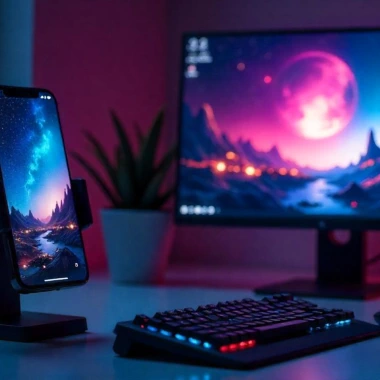
There are an estimated 6 billion mobile phones in use worldwide in 2025. Modern smartphones are 20,000 to 100,000 times more powerful than the original ARM-based computers developed by Acorn Computers Ltd. back in 1987. Remarkably, even the 8 MHz ARM chip in the Acorn A3010 was fast enough to run the full RISC OS graphical user interface — proving that today’s phones easily have the computing power needed for desktop-class applications.
In reality, at least half of today’s smartphones are technically capable of functioning as compact desktop PCs. However, they fall short in practice because they lack large displays and because Android was never designed as a true desktop operating system. While there have been attempts to bridge this gap, these efforts often came from the same big tech companies that dominate the mobile market — and true success would have threatened their business models more than it helped.
The truth is: most of us already carry a powerful mini-PC in our pocket every day. So why should people buy a separate desktop computer when their smartphone could handle the same daily tasks?
ULTRA OS aims to change this by unlocking the full potential of modern smartphones — transforming them into fully capable PCs for everyday work and productivity.
The majority of PCs and laptops in use today still rely on Intel’s x86 architecture. To achieve widespread adoption and appeal to general users, ULTRA OS must be fully compatible with x86 processors — ensuring smooth performance on the vast installed base of existing desktops and notebooks. Supporting x86 alongside ARM and RISC-V will make ULTRA OS a truly universal operating system, ready to run on mainstream hardware without compromise.
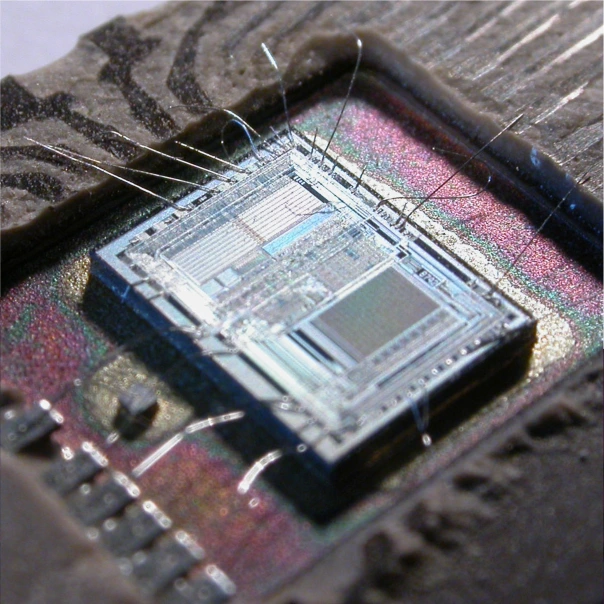
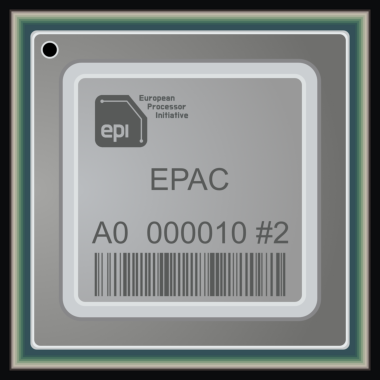
The RISC-V processor architecture was developed as a fully open-source alternative to proprietary designs like ARM. It delivers comparable performance and cost efficiency while offering developers and manufacturers complete freedom from licensing restrictions and vendor lock-in.
Given ULTRA OS’s emphasis on openness, efficiency, and cross-platform flexibility, it is a natural match for the RISC-V ecosystem. Supporting RISC-V would broaden ULTRA OS’s reach and help strengthen the adoption of open hardware and software standards — empowering innovation without barriers.
The popular Raspberry Pi is an excellent candidate for running ULTRA OS as a lightweight and efficient operating system. Its popularity stems from its affordability and versatility — it can serve as a media center, a development and gaming platform, a web server, a desktop computer, or even as the controller for robots and IoT projects.
The Raspberry Pi is also a valuable educational tool, widely used by educators and students alike to explore computer science, programming, robotics, and electronics in a hands-on way.
Currently, there are an estimated 23 million Raspberry Pi 3 units, 20 million Pi 4 units, and 5 million Pi 5 units in circulation. If each board owner contributed just 0.05 € per Pi, it would generate enough funding to fully support the development of ULTRA OS for this entire ecosystem.

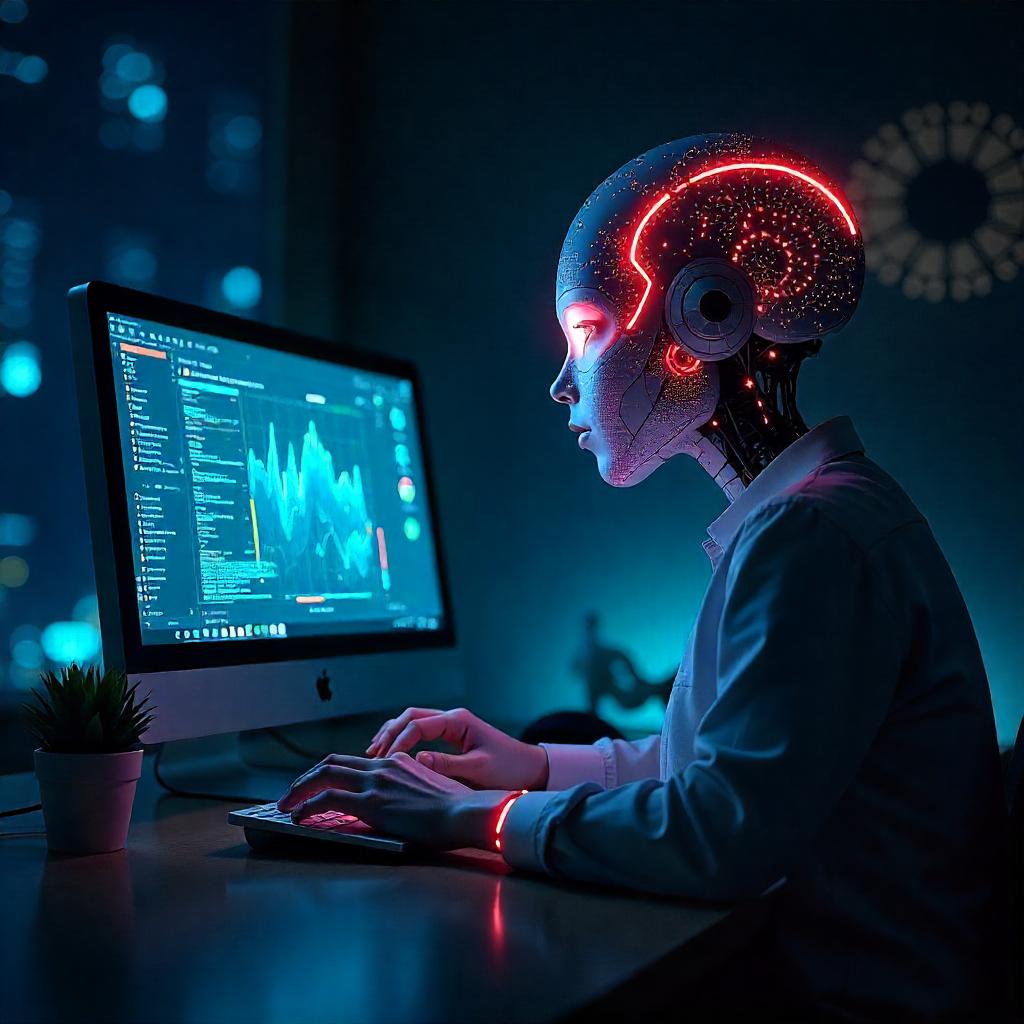
Instead of using internet AI services turn your local computer into an AI station.
Turn your computer into a powerful AI workstation—no internet needed. With local AI, your data stays private, your research remains secure, and you cut out recurring service fees. Enjoy faster performance, full control, and total independence from cloud providers.
Low-cost AI mini computers can start from 300 Euro. Mid-size AI system can be offered from 900 Euro.
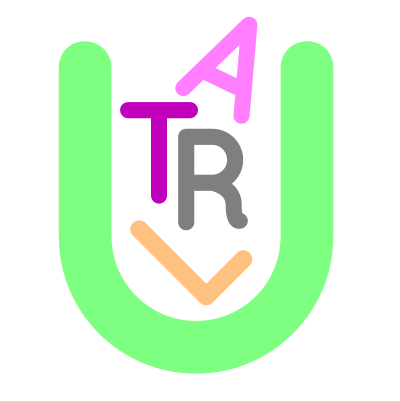
Our vision includes dedicated ULTRA OS versions tailored for families, featuring parental controls, curated educational content, and games designed for creativity and learning—not violence. With increasing concerns over social media, messaging apps, cyberbullying, and manipulative content, ULTRA OS aims to give parents the tools they need to protect their children and ensure a healthy relationship with technology.
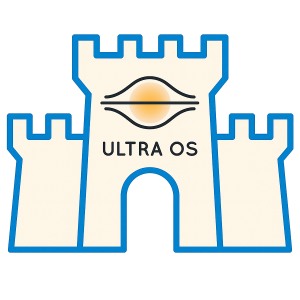
Your company need a hacker-safe operating system or you don't trust the current mobile phone suppliers with your data anymore. Then we could developpe an OS for you a special OS version of ULTRA OS that suits your needs.
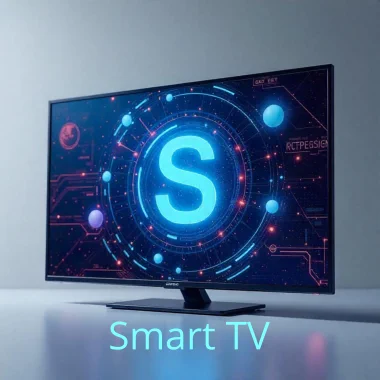
Suppliers from Smart TVs can turn their TV with ULTRA OS in a real ALL-in-one PC.
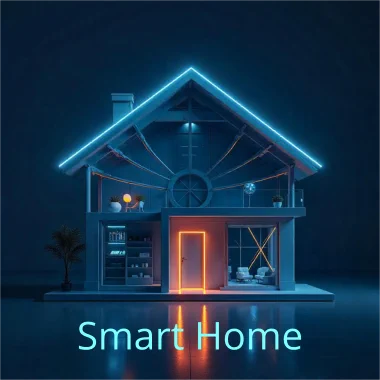
Control your home with a save OS that doesn't share your data with the rest of the world.

You want to market a computer/mobile solution that is not based on Google Android or Apple IOS or Linux.

Your company need a low maintenance cost or a super save (unhackable) OS. Then ULTRA OS is a valid option.

Your country wants to get independent from the USA or save licensing fees and maintenance cost. Then ULTRA OS is a valid option.
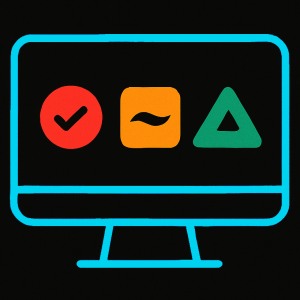
you want to offer an inexpensive user friendly solution for your PC, laptop, mobiles and tablets or Smart TVs.
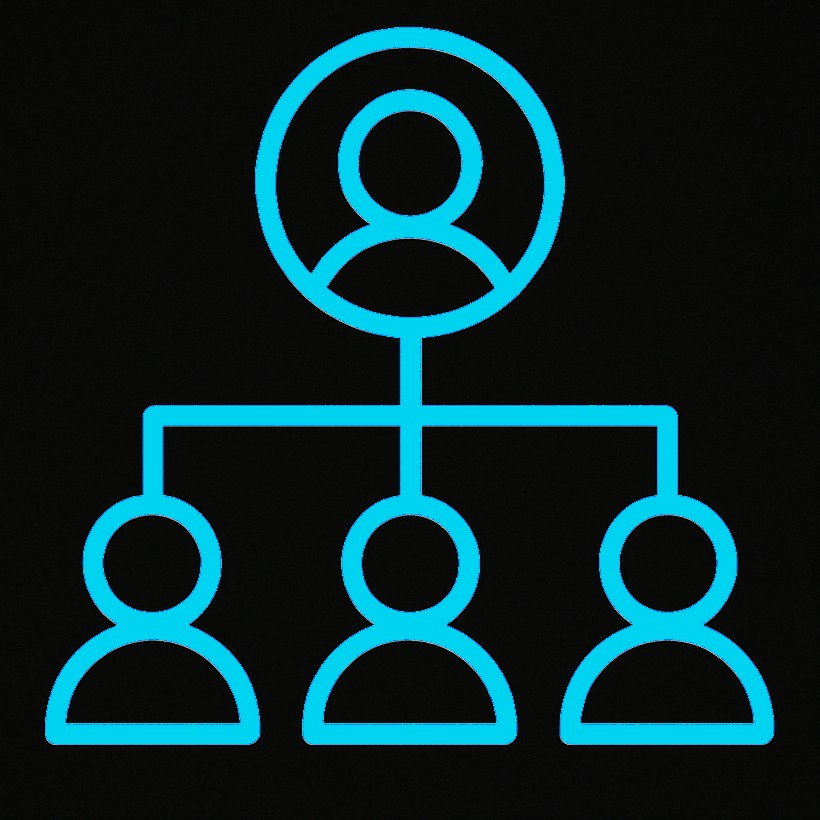
Your country or city is still not based on computerized solutions? We can built your customized systems to streamline your administration, increase effectiveness and service quality for your citizens.

With ULTRA OS schools have an affordable choice for their class rooms. ULTRA OS will provide the full scope of computing technologies to teach their students. This include operating modern computers user interface, Word processor, spread sheets, database, image processing, vector graphics, Desktop publishing, programming in C/C++, Python, PHP, Javascript etc. and last but not least AI technologies.

User friendly, open and low cost. ULTRA OS for tinkerers The philosophy that ULTRA OS will provide all major functionality as OS modules offers programmers and tinkerers the opportunity to concentrate on the real task that they have planned to solve.

Family-Friendly Computing ULTRA OS is committed to creating a safe digital environment for children—on both desktop and mobile platforms. We believe that children should be able to explore, learn, and play on their devices without exposure to harmful content.
You got curious about ULTRA OS and UltraCanvas? Here some more answers that we might have missed to cover.
The availability of the complete operating system depends on the level of funding and donations, with an estimated development timeline of 1 to 4 years.
There will be two stages of implementation:
Phase One: A Linux-based version featuring the ULTRA OS desktop environment and a suite of UltraCanvas applications.
Phase Two: The full ULTRA OS, including a custom kernel and low-level drivers.
Additionally, the UltraCanvas desktop and its applications will also be made available for Windows, macOS, and other supported operating systems.
You can get the first experience of UltraCanvas right now in Linux. Support for Windows and macOS we expect to be ready end of November 2025. A 80% version of UltraCanvas we expect end of December. Demo app is available for dYou can already experience the first version of UltraCanvas on Linux.
Support for Windows and macOS is expected to be ready by the end of November 2025, with approximately 80% of UltraCanvas functionality planned for completion by the end of December.
A demo application for Linux is available for download now.
ownload right now for Linux.
There are several ways you can support our project:
Develop with UltraCanvas: Create new applications using UltraCanvas — they’ll be automatically compatible with ULTRA OS and can also run on Windows, macOS, and Linux.
Spread the word: Share information about our project on social media or repost our updates.
Engage the open-source community: If you’re active in open source, help us by sharing your knowledge and introducing others to our work.
Become a donor: Contribute financially to support the ongoing development of ULTRA OS.
Connect us with supporters: Tell potential donors about our mission whenever you have the opportunity.
Join our funding initiative: Participate in funding efforts for the commercial branch of the project.

If you have question or want to assist us, contact us!